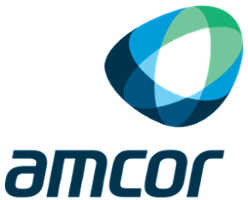
Cork is an impermeable buoyant material. It is the phellem layer of bark tissue which is harvested for commercial use primarily from Quercus suber, which is native to southwest Europe and northwest Africa. Cork is composed of suberin, a hydrophobic substance. Because of its impermeable, buoyant, elastic, and fire retardant properties, it is used in a variety of products, the most common of which is wine stoppers.

Sappi Limited, originally incorporated as South African Pulp and Paper Industries Limited in 1936, is a South African pulp and paper company with global operations.
Vantiva SA, formerly Technicolor SA, Thomson SARL, and Thomson Multimedia, is a French multinational corporation that provides creative services and technology products for the communication, media and entertainment industries. Vantiva's headquarters are located in Paris, France. Other main office locations include Norcross (USA), Rennes (France) Edegem (Belgium) Seoul, Beijing (China), Chennai (India), Memphis (USA).

Textron Inc. is an American industrial conglomerate based in Providence, Rhode Island. Textron's subsidiaries include Arctic Cat, Bell Textron, Textron Aviation, and Lycoming Engines. It was founded by Royal Little in 1923 as the Special Yarns Company. In 2020, Textron employed over 33,000 people in 25 different countries. The company ranked 265th on the 2021 Fortune 500 of the largest United States corporations by revenue.

Amcor plc is a global packaging company. It develops and produces flexible packaging, rigid containers, specialty cartons, closures and services for food, beverage, pharmaceutical, medical-device, home and personal-care, and other products.
Sonae is a multinational business group headquartered in Maia, Portugal. It operates in 90 countries, working in various sectors, among which retail, real estate, media and telecommunications, technology investments, and financial services stand out.

Grupo Salvador Caetano, SGPS, SA or simply Salvador Caetano is a Portuguese holding based in Vila Nova de Gaia, Portugal that controls some enterprises on vehicle assembly, components and distribution business.

Britannia Industries Limited is an Indian multinational FMCG company specialized in the food industry, part of the Wadia Group headed by Nusli Wadia. Founded in 1892 and headquartered in Kolkata, it is one of India's oldest existing companies and best known for its biscuit products. The company sells biscuits, breads and dairy products throughout India and abroad. Beginning with the circumstances of its takeover by the Wadia Group in the early 1990s, the company has been mired in several controversies connected to its management. However, it still has a large market share and it is profitable.

Cerealis is a Portuguese food producer and the biggest milling company in Portugal, headquartered in Maia, and founded in 1919 as a cereal processing company. Cerealis Group has two divisions, food producer Cerealis Produtos Alimentares and miller Cerealis Moagens which produce and commercialise a range of products including pasta, biscuits, cornflakes as well as providing milled wheat flour and rye flour to the food manufacturing sector. Cerealis Group is a privately owned company and owns the Portuguese well-known brands Milaneza and Nacional. The company's exporting branch, Cerealis Internacional, exports the groups's products, and has its main clients in the United Kingdom, France, Belgium, Luxembourg, Germany, Switzerland, United States, Canada, Angola, Mozambique, Cape Verde, São Tomé and Príncipe, Cuba, South Africa, and Libya. In 2007, about 200,000,000 euros of products were exported by Cerealis.

Armstrong World Industries, Inc. is a Pennsylvania corporation incorporated in 1891. It is an international designer and manufacturer of wall and ceiling building materials. Based in Lancaster, Pennsylvania, AWI has a global manufacturing network of 26 facilities, including nine plants dedicated to its WAVE joint venture. In 2011, Armstrong's net sales were $2.86 billion, with operating income of $239.2 million.

EFACEC Power Solutions SGPS, S.A. is a Portuguese energy, engineering and mobility company, comprising several subsidiaries in different international markets. Efacec group is one of the largest manufacturers in the fast-charging infrastructure market for electric vehicles.

Galp Energia, SGPS, S.A. is a Portuguese multinational energy corporation, headquartered in Lisbon, Portugal. Galp consists of more than 100 companies engaged in every aspect of the oil and natural gas supply, hydrocarbon exploration and production; refining, trading, logistics and retailing; co-generation and renewable energy. Galp was founded in 1999 through the merger of Petrogal, Gás de Portugal and Transgás. As of 2020, it is the largest oil and gas group in Portugal, where it distributes gas and sells petrol.

Wine corks are a stopper used to seal wine bottles. They are typically made from cork, though synthetic materials can be used. Common alternative wine closures include screw caps and glass stoppers. 68 percent of all cork is produced for wine bottle stoppers.

Américo Ferreira Amorim was a Portuguese billionaire businessman, and a 50% owner of Corticeira Amorim, founded by his grandfather. He was the richest person in Portugal at the time of his death with a fortune estimated of $4.8 billion.

Martifer SGPS, S.A. is a family group based in Oliveira de Frades, Portugal, with over 3,000 employees, focusing its activity on the metal construction and renewable energy areas.

Agriculture in Portugal is based on small to medium-sized family-owned dispersed units; however, the sector also includes larger-scale intensive farming export-oriented agrobusinesses backed by companies. The extent of cooperative organisation has been reaching a greater importance with globalization. Portugal produces a wide variety of products, including green vegetables, rice, corn, wheat, barley, olives, oilseeds, nuts, cherries, bilberry, table grapes and edible mushrooms. Forestry has also played an important economic role among the rural communities and industry. In 2013, the gross agricultural product accounted for 2.4% of the GDP. Portugal is the largest world producer of both cork and carob, as well as the third largest exporter of chestnut and the third largest European producer of pulp. Portugal is among the top ten largest olive oil producers in the world and is the fourth biggest exporter. The country is also one of the world's largest exporters of wine, being reputed for its fine wines. The land area of slightly more than 9.2 million hectares was classified as follows : 2,755 arable land and permanent crops, 530 permanent pasture, 3,640 forest and woodland, and 2,270 other land.
Hidden champions are relatively small but highly successful companies that are concealed behind a curtain of inconspicuousness, invisibility, and sometimes secrecy. The term was coined by Hermann Simon. He first used the term as a title of a publication in a scientific German management journal, describing the small, highly specialized world-market leaders in Germany. According to his definition, a company must meet three criteria to be considered a hidden champion:
Siemens Digital Industries Software is an American computer software company specializing in 3D & 2D Product Lifecycle Management (PLM) software. The company is a business unit of Siemens, operates under the legal name of Siemens Industry Software Inc, and is headquartered in Plano, Texas.
Stelia Aerospace is an aerospace company headquartered in Toulouse, France. It specializes in the design and manufacture of aerostructures, pilot seats and premium class passenger seats, mainly for the commercial aviation sector.














